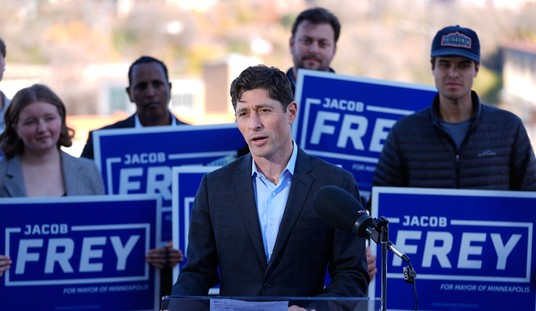This morning’s Gospel reading is John 12:20–33:
Some Greeks who had come to worship at the Passover Feast came to Philip, who was from Bethsaida in Galilee, and asked him, “Sir, we would like to see Jesus.” Philip went and told Andrew; then Andrew and Philip went and told Jesus. Jesus answered them, “The hour has come for the Son of Man to be glorified. Amen, amen, I say to you, unless a grain of wheat falls to the ground and dies, it remains just a grain of wheat; but if it dies, it produces much fruit. Whoever loves his life loses it, and whoever hates his life in this world will preserve it for eternal life. Whoever serves me must follow me, and where I am, there also will my servant be. The Father will honor whoever serves me.
“I am troubled now. Yet what should I say, ‘Father, save me from this hour’? But it was for this purpose that I came to this hour. Father, glorify your name.” Then a voice came from heaven, “I have glorified it and will glorify it again.” The crowd there heard it and said it was thunder; but others said, “An angel has spoken to him.” Jesus answered and said, “This voice did not come for my sake but for yours. Now is the time of judgment on this world; now the ruler of this world will be driven out. And when I am lifted up from the earth, I will draw everyone to myself.” He said this indicating the kind of death he would die.
Nothing is ever as bad as it looks, and nothing is ever as good as it seems. On the rare occasions anyone ever asks me advice on life, that’s usually the first — and last — insight I’ll share. We live in a world where wealth and pleasure often deceive, and where pain and suffering do as well and in the same way. Both seem as though they are never-ending, all-encompassing, and inevitable. In a sense, they both lead to a certain kind of despair if one commits too much to those states being unchangeable, even while both lend themselves to a strange sense of hope as well.
It’s good to be skeptical of both extremes. Christianity warns against both extremes too, especially during Lent, when we recall the hardships of exile and the pitfalls of excessive reliance on material wealth and power. Today’s readings (which again have several options in the lectionary) reflect that edge between despair and hope, between disaster and salvation, and allow us to see that God’s will is not and cannot be entirely known to us. The context of our first reading today from Jeremiah makes that clear, although it is not included in the reading itself.
Jeremiah prophesied to Judah at the time of its conquest by the Babylonians and the second wave of exiles. At the time, the Judeans assumed that they would never suffer the fate of the Israelites of the northern kingdom, which had been destroyed by the Assyrians, because the temple of God was in Jerusalem. Jeremiah had warned that the temple was no guarantee of safety as long as the Judeans rejected the Lord’s leadership, and that the city would fall. Jeremiah offered that warning early (Jeremiah 7):
Thus says the LORD of hosts, the God of Israel, Amend your ways and your doings, and I will let you dwell in this place. Do not trust in these deceptive words: ‘This is the temple of the LORD, the temple of the LORD, the temple of the LORD.’ …
Go now to my place that was in Shiloh, where I made my name dwell at first, and see what I did to it for the wickedness of my people Israel. And now, because you have done all these things, says the LORD, and when I spoke to you persistently you did not listen, and when I called you, you did not answer, therefore I will do to the house which is called by my name, and in which you trust, and to the place which I gave to you and to your fathers, as I did to Shiloh. And I will cast you out of my sight, as I cast out all your kinsmen, all the offspring of E’phraim.
Rather than trust in the Lord — or to believe in Jeremiah as a prophet — the Judeans continued to reject the Lord’s commands. They clung to the temple as an idol, believing that the Lord would never allow His temple to be captured by non-believers. Despite Jeremiah’s prophesies of doom, Judea refused to repent and the city fell to Babylon. It appeared that the Lord had indeed abandoned His people, although what had happened was the reverse — His people had abandoned the Lord, and the Babylonian conquest was the consequence.
Jeremiah, however, began prophesy of salvation in the midst of doom. The Lord had not abandoned His people; in fact, the Lord was calling them to remain hopeful of their eventual salvation. In chapters previous to today’s reading, Jeremiah told them that the Lord had delivered them to Babylon for their sins, but that they would be redeemed in seventy years. God told Jeremiah that He would write a new covenant for them, not with the temple but by writing the law on their hearts so that each of them would be His:
But this is the covenant that I will make with the house of Israel after those days, says the LORD. I will place my law within them and write it upon their hearts; I will be their God, and they shall be my people. No longer will they have need to teach their friends and relatives how to know the LORD. All, from least to greatest, shall know me, says the LORD, for I will forgive their evildoing and remember their sin no more.
The Babylonian captivity was a necessary application of discipline after their abandonment of the original covenant, Jeremiah explains. Although it had to look as bleak as the days of captivity in Egypt, it broke the Judeans’ treatment of the temple as an idol and restored the connection to God in people’s hearts.
This has clear parallels to today’s Gospel reading from John. Jesus explains in a parable why destruction sometimes is necessary for salvation, and in doing so explains that He will shortly be sacrificed for our salvation. He Himself admits to being “troubled” by what is to come, which is in essence another destruction of the temple — this time, the true temple of our Lord. Rather than balk at this or pretend it won’t happen, Jesus embraces the Father’s will, proclaiming that this was His entire purpose.
His declaration is followed by a voice from the heavens reaffirming God’s glory, which Jesus explains was not intended for Him. “This voice did not come for my sake but for yours,” He tells His disciples. This is meant to reassure them through the days of darkness — of another kind of spiritual exile from Christ as He goes through His Passion and resurrection — that a new covenant is on the horizon for those who are faithful.
We are called to that same faith on our own exile here in this world. Our task as Christians is to remain faithful to the Lord through our tribulations, to see that in this material world that nothing is ever as bad as it seems, and nothing is ever as good as it looks. We are called to orient ourselves to the spirit rather than the flesh in order to prepare for the eventual end of our exile, as Paul instructs the Romans in our second reading:
Those who are in the flesh cannot please God. But you are not in the flesh; on the contrary, you are in the spirit, if only the Spirit of God dwells in you. Whoever does not have the Spirit of Christ does not belong to him. But if Christ is in you, although the body is dead because of sin, the spirit is alive because of righteousness. If the Spirit of the one who raised Jesus from the dead dwells in you, the One who raised Christ from the dead will give life to your mortal bodies also, through his Spirit dwelling in you.
Even when all seems bleak, our hope is in Christ, who has already conquered sin and death on our behalf. All we need to do is to orient ourselves to Him and to our eternal life in a restored kingdom, one of love and joy.
The front page image is a detail from “Jeremiah lamenting the destruction of Jerusalem” by Rembrandt, 1630. On display at the Rijksmuseum in Amsterdam, The Netherlands. Via Wikimedia Commons.
“Sunday Reflection” is a regular feature, looking at the specific readings used in today’s Mass in Catholic parishes around the world. The reflection represents only my own point of view, intended to help prepare myself for the Lord’s day and perhaps spark a meaningful discussion. Previous Sunday Reflections from the main page can be found here. For previous Green Room entries, click here.








Join the conversation as a VIP Member